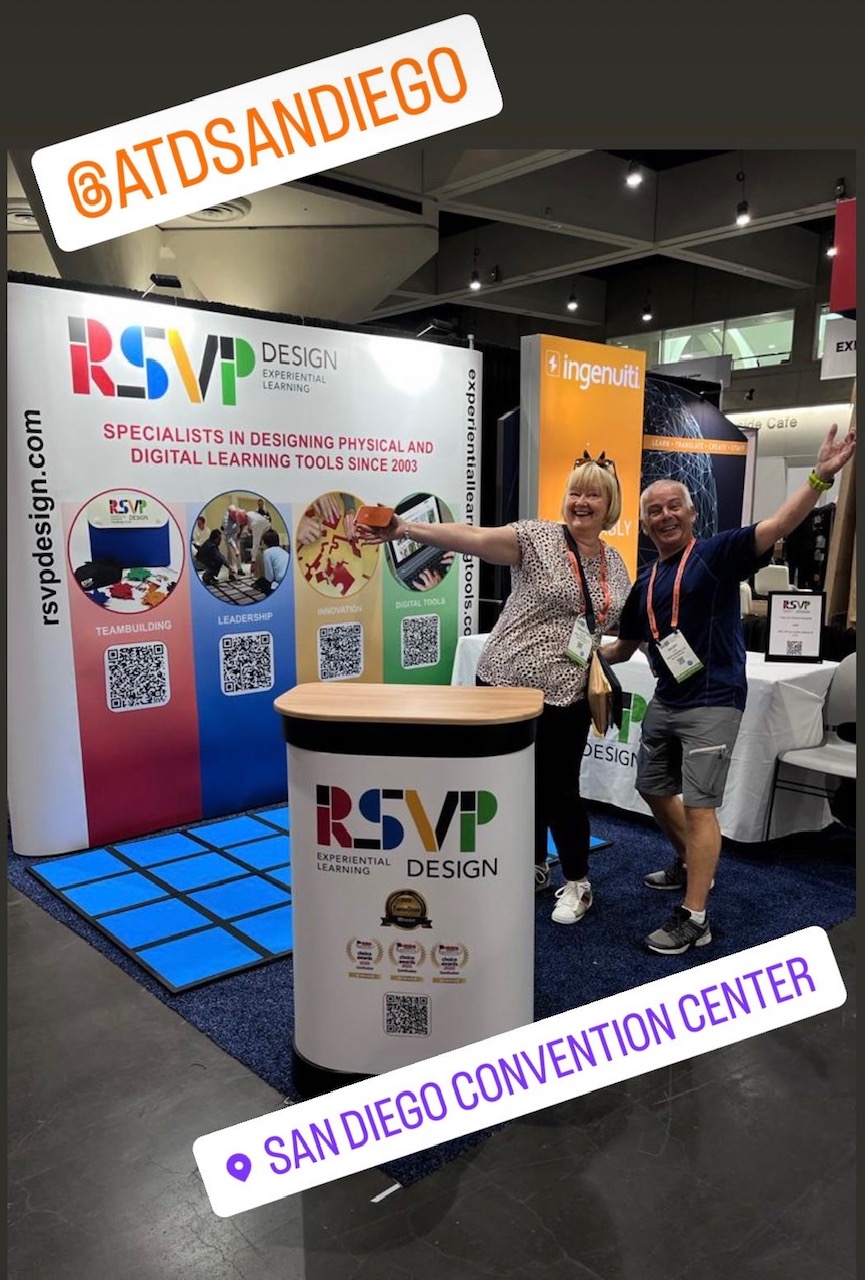The Experiential Learning Tools team had a stand at the
ATD23 Expo in San Diego alongside
RSVP Design. Now being back from an incredibly successful and interactive conference, it’s time to review our experience there and reflect on trends we’ve identified.
Graham, the proud Scot, did sport his traditional kilt and sporran, which invariably sparked the usual flurry of “
Bonnie Scotland” conversations and requests for photos.
However, the expected “Where do you work?” dialogue was not as prevalent as anticipated. It seems that the years of the pandemic have nurtured a broader acceptance of ideas and strategies across cultures and geographies.
Interestingly, questions about the global applicability of our tools were also less frequent than anticipated. I’d like to delve into why that was the case by exploring the evolving landscape of experiential learning.
What we are observing is a rapidly growing understanding and acceptance of experiential learning as a distinct and efficient methodology. Nowadays, we find ourselves interacting with well-informed consumers who have delved into learning methodologies and approach us with knowledgeable queries about our experiential tools. This suggests that the market is beginning to align with our forward-thinking approach at Experiential Learning Tools, something we’ve long championed.
The ATD23 conference, being a truly global event, offers valuable insights into learning and development trends worldwide. We engaged in conversations spanning continents, including the USA, the Far East, South America, and the Middle East. Although we arrived prepared to discuss how our SaaS platform could be adapted to different languages and cultures, these discussions were surprisingly infrequent. With an informed market, basic enquiries appear to be largely unnecessary.
Another highlight of ATD23 was the seniority of the attendees. This resulted in us having meaningful dialogues with decision-makers about how our tools could drive behavioural change in their organisations. These experienced professionals required minimal guidance on implementing and rolling out our platform.
So, what has changed?
Numerous factors have contributed to this shift, which will undoubtedly be the subject of future academic research. However, I believe a notable observation is the transformation in L&D recruitment policies within organisations. From a supplier’s perspective, this appears to be a positive trend. Over the past thirty years, it seems the practical capabilities of those tasked with delivering L&D content have become more focused and less dynamic. Many trainers were comfortable delivering existing content but were often hesitant to venture beyond scripts and timetables or to fully embrace more engaging experiential methods. This concern was often attributed to a lack of facilitation skills and experience outside formal, didactic educational settings.
That’s why it was refreshing to engage in discussions in San Diego with professionals who had transitioned from the education sector to corporate roles. The strategy of recruiting experienced facilitators and then educating them about business has proven promising. We believe this shift will fuel the widespread acceptance of experiential methodologies in the years to come.

